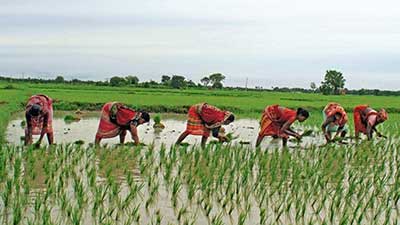Date: 25/04/2023
Relevance: GS-2: Important International institutions, agencies and fora- their structure, mandate
Key Phrases: United Nations Statistical Commission (UNSC), System of National Accounts (SNA) 2025, P.C. Mahalanobis, Gross Domestic Product, Gross Value Addition (GVA).
Context:
- Recently, India was unanimously elected to the United Nations Statistical Commission (UNSC) after a gap of two decades.
- The membership is for a term of four years, beginning in January 2024.
- There is also a possibility of India chairing the commission during this tenure.
About United Nations Statistical Commission:
- Role: The UNSC is responsible for setting international statistical standards, promoting the use of those standards, and coordinating statistical activities among UN agencies and member states.
- Composition: The UNSC is composed of 24 member countries elected by the Economic and Social Council on the basis of equitable geographical distribution. Members serve for a term of four years.
- Meetings: The UNSC meets annually in New York to review and approve statistical standards and methods, and to discuss emerging issues in global statistics.
- Work Program: The UNSC's work program includes developing statistical methods, improving the coverage and quality of data, promoting the use of statistics for policy-making, and monitoring progress towards the Sustainable Development Goals.
- Contributions to International Development: The UNSC's work is critical to achieving the UN's mission of promoting sustainable development and reducing poverty, by providing accurate and timely data to guide policy making and measure progress towards development goals.
- Collaboration: The UNSC works closely with other UN bodies, including the World Health Organization, the International Labor Organization, and the Food and Agriculture Organization, to ensure that statistical standards are harmonized and consistent across different areas of development.
- Publications: The UNSC publishes a range of reports and publications, including the Handbook of Statistical Organization, the System of National Accounts, and the Principles and Recommendations for Population and Housing Censuses.
- The UNSC was established in 1947.
- It brings together the chief statisticians of member states from around the world.
- They also enable comparability across countries through various indicators such as Gross Domestic Product (GDP), Gross Value Addition (GVA) and other measures that emerge from various statistical processes, like household survey data, employment-unemployment statistics, price statistics, health accounts, tourism accounts, environment accounts, etc.
India's History with UNSC:
- In the country’s long history of 76 years, we have had two of our prominent statisticians chairing the Commission.
- The first Indian to hold its chair was P.C. Mahalanobis (for its eighth and ninth sessions held in 1954 and 1956 respectively), followed by V.R Rao who chaired the 19th session in 1976.
- Mahalanobis made path-breaking contributions to the UNSC during its formative years.
- He created a sub-commission on statistical sampling, which paved the way for the application of sample surveys in various fields of official statistics.
- Rao strengthened the statistical organizations of many developing countries across several regions, especially for carrying out household sample surveys.
- He is also credited with having chaired the only ever session of the UNSC held outside a UN duty station, held in New Delhi, 1976, at the invitation of the Indian government.
Deliberations during India's Tenure:
- Finalization and implementation of the System of National Accounts (SNA) 2025, a framework adopted by UN member countries for the formulation of national accounts.
- Emerging economies like India and developing countries across the global south are at a disadvantageous position on account of non-measurement of certain economic activities, such as unpaid work by women.
- Need to redefine and develop methods to measure the value addition of unpaid work.
- Changes in production, consumption and expenditure patterns due to digitalization have resulted in a shift from physical to online transactions and also given rise to new types of economic activities beyond the old SNA framework.
- India's growth in the digital-economy industries estimated at around 21% compared to developed countries' growth of around 10-12%.
India's Role in the Revision of SNA 2025:
- India should play a key role in the forthcoming revision of the Commission's SNA to bring about a consensus on including additional digital industries and products and enable countries to clearly measure the contribution of digitalization.
- Other important issues relating to the measurement of well-being, the impact of climate change, etc.
- Incorporating economic activities into the revised SNA of 2025 and implementing the same can help achieve a $5 trillion economy with a $1 trillion digital economy.
Conclusion:
- India’s four-year membership tenure at the Commission comes at an opportune time.
- We should seize this opportunity to represent the global south in setting statistical standards and help with their implementation.
Source: Live-Mint
Mains Question:
Q. Discuss the significance of India's election to the United Nations Statistical Commission (UNSC). What are the potential benefits of India chairing the Commission during its tenure? (250 Words).







